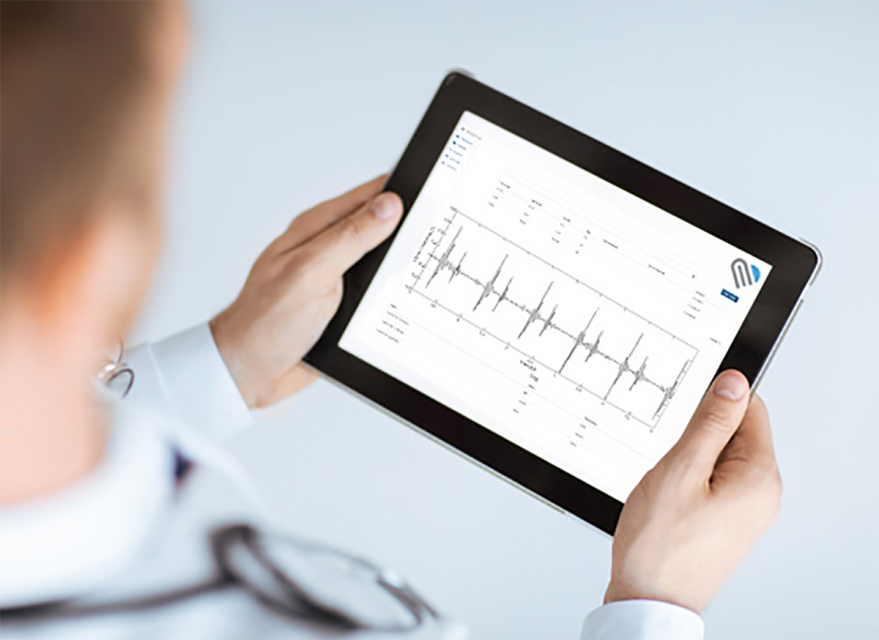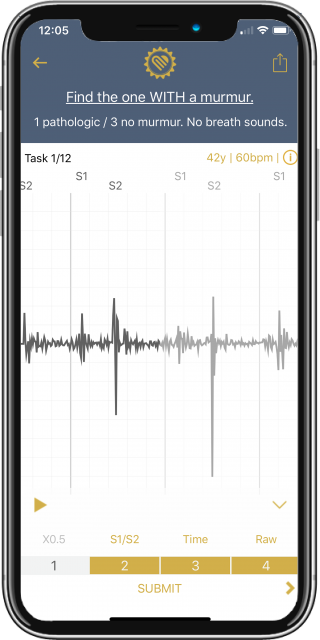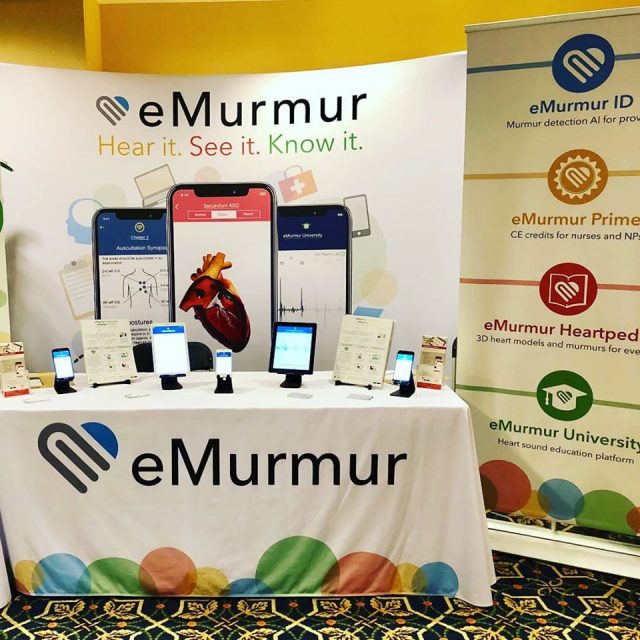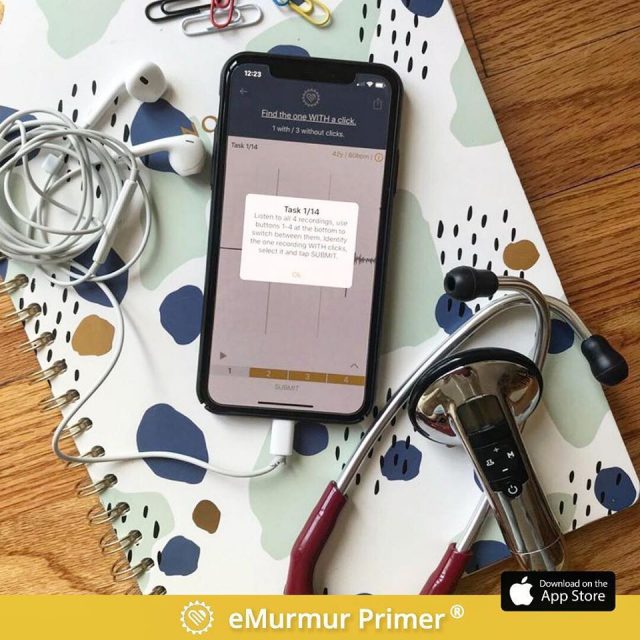Seeing a healthcare provider usually means having your heart listened to with a stethoscope, a procedure called cardiac auscultation. But what are they actually hearing? Unlike a blood test, you don’t receive documentation with the findings from auscultation. eMurmur ID takes the guesswork out of the process. Our decision-support algorithm identifies and classifies heart murmurs, yielding expert-level accuracy within seconds.

As one of the world’s leading causes of death in men and women, heart disease is often foreshadowed by a heart murmur, an abnormal heart sound that is usually first identified by a healthcare provider using a stethoscope. Even so, the accuracy rate of detecting a heart murmur is low among primary care providers, and, because of this, patients with suspected pathological heart murmurs are referred to a cardiologist for an echocardiogram—which often shows that the patient either has no murmur, or an innocent one. Inappropriate referrals are common and are accompanied by long, often stressful wait times, emotional distress, and the burden of having to take time off of work and school. We created eMurmur ID to address that problem.

eMurmur ID uses advanced machine learning to identify and classify pathologic and innocent heart murmurs, the absence of a heart murmur, the heart rate, and S1/S2 markers. The end-toend solution is comprised of AI-based analytics, a mobile app, and a web portal—all FDA cleared, HIPAA compliant, and CE marked. eMurmur ID is designed to seamlessly integrate into a healthcare practitioner’s workflow and in addition to being an effective screening tool, it is an innovative method of confirming a healthcare provider’s clinical diagnosis.
This disruptive technology has been proven through many clinical trials and validation studies to be highly accurate at identifying and classifying heart murmurs. The story of eMurmur dates back to 2012, when the founder, Andreas Schriefl and cofounder (and name twin) Andreas Reinisch were studying Biomedical Engineering together in their homeland of Austria. Their field of research was right at the intersection of Engineering and Medicine, which is where they saw an opportunity to make a difference in the area of cardiac auscultation by developing machine learning algorithms for the automated interpretation of heart sounds.
,

In 2018, Ottawa was chosen as eMurmur’s North American hub because it is home to two worldrenowned institutions that would prove to be instrumental in carrying out eMurmur’s clinical research: CHEO (the Children’s Hospital of Eastern Ontario) and the Ottawa Heart Institute. Over the years, eMurmur ID’s algorithm was built out and validated through several clinical studies on heart sounds from patients of all ages. During the FDA submission process, the eMurmur team began receiving feedback from instructors that teaching heart murmur identification to students was challenging, and it became clear that the thousands of clinically verified heart sounds amassed over the years could in fact serve as an invaluable resource for both students and practitioners in medical and health care fields.

The eMurmur team developed two innovative teaching and training apps called eMurmur University and eMurmur Primer, both available for iOS and Android devices. eMurmur University is a tool for instructors that are using the app to teach and test the recognition of heart sounds and murmurs to students. eMurmur Primer is a self-testing app meant to refresh the learner’s ability to hear and distinguish heart sounds and murmurs.
eMurmur is expanding quickly and will start rolling out the clinical product eMurmur ID across the US and EU during its next go-tomarket phase in 2020. It is the company’s vision to provide highly accurate heart-health screenings to millions of people around the globe.













